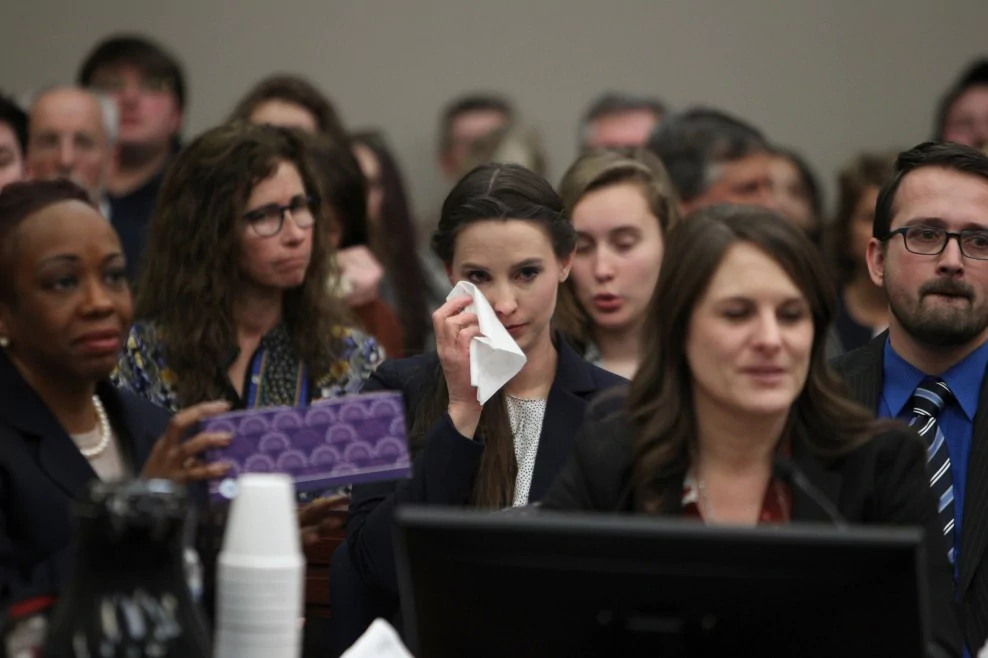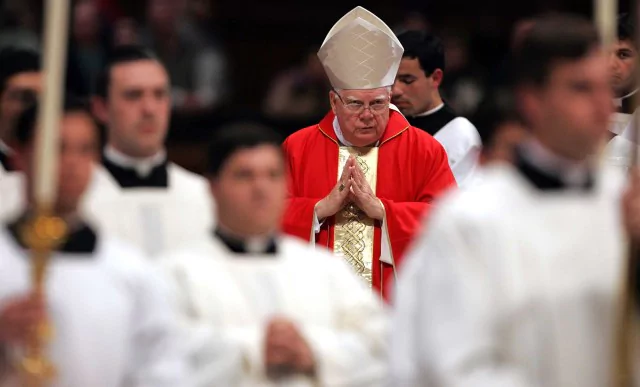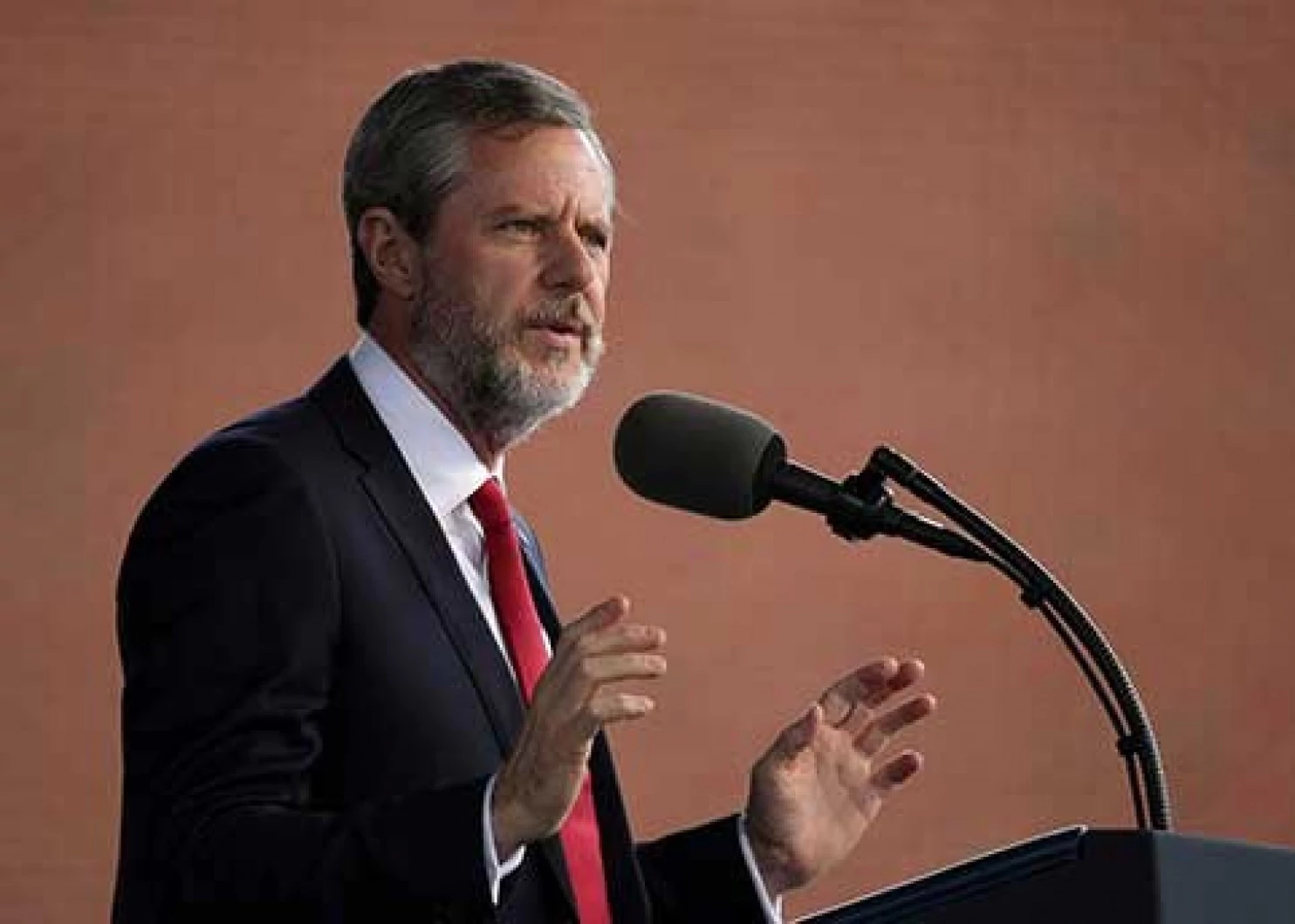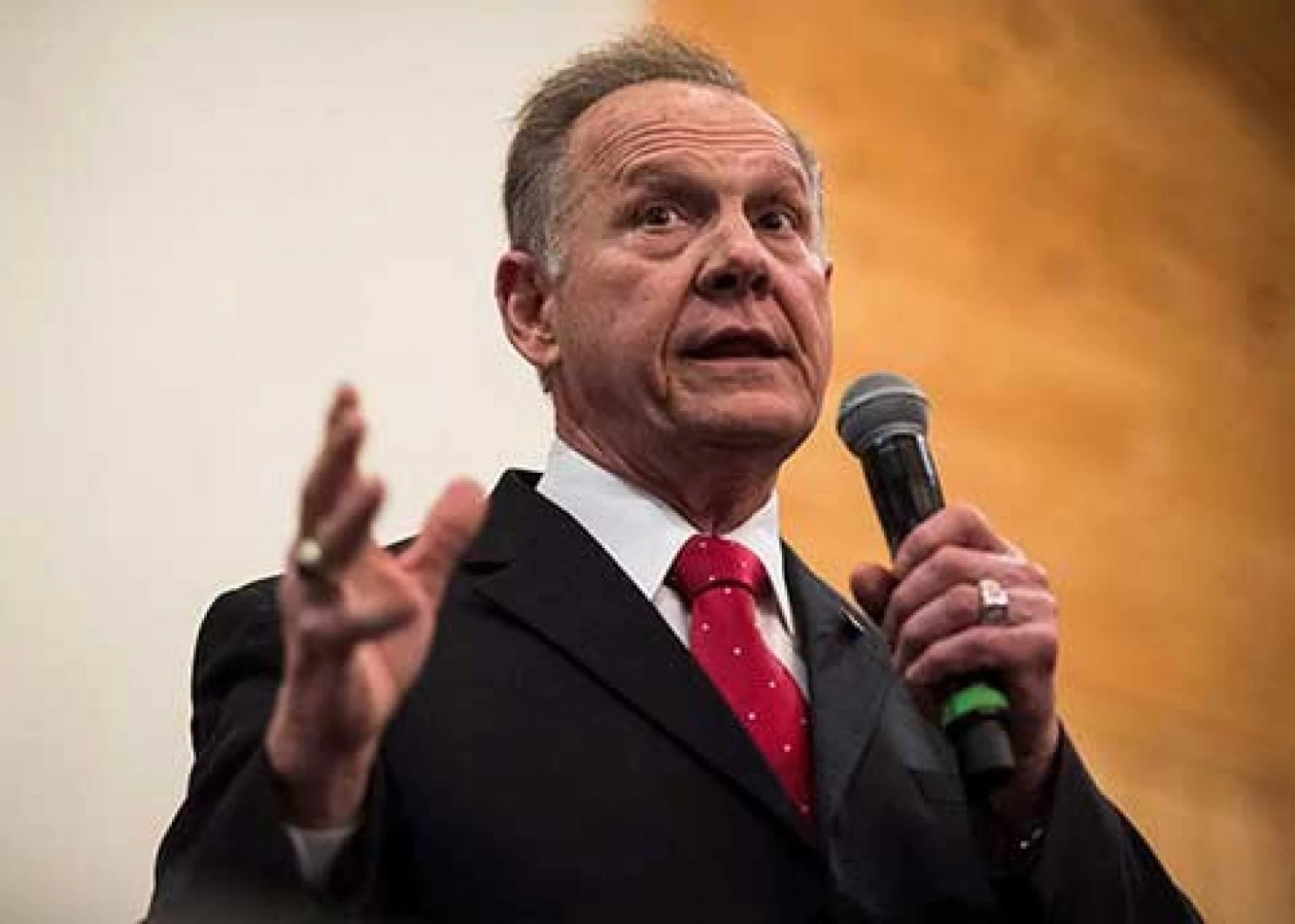The Sin of Silence
By Joshua Pease
Across the United States, evangelical churches are failing to protect victims of sexual abuse among their members. As the #MeToo movement has swept into communities of faith, several high-profile leaders have fallen: Paige Patterson, the president of Southwestern Baptist Theological Seminary, was forced into early retirement this month after reports that he’d told a rape victim to forgive her assailant rather than call the police. Illinois megachurch pastor Bill Hybels similarly retired early after several women said he’d dispensed lewd comments, unwanted kisses and invitations to hotel rooms. So many Christian churches in the United States do so much good — nourishing the soul, comforting the sick, providing services, counseling congregants, teaching Jesus’s example, and even working to fight sexual abuse and harassment. But like in any community of faith, there is also sin — often silenced, ignored and denied — and it is much more common than many want to believe. It has often led to failures by evangelicals to report sexual abuse, respond appropriately to victims and change the institutional cultures that enabled the abuse in the first place. Without a centralized theological body, evangelical policies and cultures vary radically, and while some church leaders have worked to prevent abuse and harassment, many have not. The causes are manifold: authoritarian leadership, twisted theology, institutional protection, obliviousness about the problem and, perhaps most shocking, a diminishment of the trauma sexual abuse creates — especially surprising in a church culture that believes strongly in the sanctity of sex. “Sexual abuse is the most underreported thing — both in and outside the church — that exists,” says Boz Tchividjian, a grandson of Billy Graham and a former Florida assistant state attorney. As a prosecutor, Tchividjian saw dozens of sexual abuse victims harmed by a church’s response to them. (In one case, a pastor did not report a sexual offender in his church because the man had repented. The offender was arrested only after he had abused five more children.) In 2004, Tchividjian founded the nonprofit organization Godly Response to Abuse in the Christian Environment (GRACE), which trains Christian institutions in how to prevent sexual abuse and performs independent investigations when churches face an abuse crisis. Tchividjian says sexual abuse in evangelicalism rivals the Catholic Church scandal of the early 2000s. Diagnosing the scope of the problem isn’t easy, because there’s no hard data. The most commonly referenced study shows how difficult it is to find accurate statistics. In that 2007 report, the three largest insurers of churches and Christian nonprofits said they received about 260 claims of sexual abuse against a minor each year. Those figures, though, exclude groups covered by other insurers, victims older than 18, people whose cases weren’t disclosed to insurance companies and the many who, like Denhollander, never came forward. In other words, the research doesn’t include what is certainly the vast majority of sexual abuse. The sex advice columnist and LGBT rights advocate Dan Savage, tired of what he called the hypocrisy of conservatives who believe that gays molest children, compiled his own list that documents more than 100 instances of youth pastors around the country who, between 2008 and 2016, were accused of, arrested for or convicted of sexually abusing minors in a religious setting. The problem in collecting data stems, in part, from the loose or nonexistent hierarchy in evangelicalism. Catholic Church abusers benefited from an institutional cover-up, but that same bureaucracy enabled reporters to document a systemic scandal. In contrast, most evangelical groups prize the autonomy of local congregations, with major institutions like the Southern Baptist Convention having no authority to enforce a standard operating procedure among member churches. This means researchers attempting to study this issue have to comb through publicly available documents.
That’s what Wade Mullen, the director of the M.Div. program at Capital Seminary & Graduate School, did as a part of his PhD dissertation. He collected reports of evangelical pastors or ministers charged with a crime in order to understand how evangelical organizations respond to crisis. Over 2016 and 2017, Mullen found 192 instances of a leader from an influential church or evangelical institution being publicly charged with sexual crimes involving a minor, including rape, molestation, battery and child pornography. (This data did not include sexual crimes against an adult or crimes committed by someone other than a leader.) His findings help explain a 2014 GRACE report on Bob Jones University, one of the most visible evangelical colleges in the country. The study showed that 56 percent of the 381 respondents who reported having knowledge of the school’s handling of abuse (a group that included current and former students, as well as employees) believed that BJU conveyed a “blaming and disparaging” attitude toward victims. Of the 166 people who said they had been victims of sexual abuse before or during their time at BJU, half said school officials had actively discouraged them from going to the police. According to one anonymous respondent, after he finally told the police about years of sexual abuse by his grandfather, a BJU official admonished him that “[you] tore your family apart, and that’s your fault,” and “you love yourself more than you love God.” BJU officials declined to comment for this article. After he finally told the police about years of sexual abuse by his grandfather, a BJU official admonished him that ‘[you] tore your family apart, and that’s your fault,’ and ‘you love yourself more than you love God.’ That same year, 18 volunteers, staff members and interns at the Institute in Basic Life Principles (including many underage girls) accused its founder, Bill Gothard, of sexual harassment, molestation and assault. Gothard had enormous sway over a small but tight-knit collection of evangelical home-schooling families around the country. One of those families was the Duggars, stars of a TLC reality television show. Josh Duggar, the eldest of 19 kids and former executive director of the conservative Family Research Council’s political action group FRC Action, lost his job after reports that he molested four of his siblings and a babysitter as a teenager. For years Duggar’s abuse stayed hidden as his parents and an Arkansas state trooper — now in prison himself on charges of child pornography — declined to disclose the crimes. (The suit against Gothard was dropped. Duggar’s actions are now outside the statute of limitations. Neither responded to requests for comment.) Sovereign Grace Churches (SGC), an influential chain of congregations, many located on the East Coast, allegedly failed to report sexual abuse claims during the ’80s and ’90s to the authorities and caused secondary trauma to victims through pastoral counseling, according to an extensive investigation by Washingtonian magazine. In one instance, an SGC pastor allegedly told a wife whose husband sexually abused their daughter to remain with him. When she asked how she could possibly stay married to a man attracted to children, she was told that her husband “was not attracted to his 11-year-old daughter but rather to the ‘woman’ she ‘was becoming.’?” Two years into the husband’s prison sentence, SGC pastor Gary Ricucci wrote in support of his parole using church letterhead, and the church welcomed him back to the community after his release. The wife no longer attends. Asked to comment on these episodes, SGC Executive Director Mark Prater emailed a statement: “We encourage all of our churches to immediately report any allegations or suspicions of abuse to criminal and civil authorities, regardless of state law or the passage of time.” He cited a program implemented in 2014, the “MinistrySafe child safety system,” that teaches member churches how to deal with reports of abuse. Ricucci — who, like other local pastors, does not answer to SGC officials — did not respond to requests for comment. The evangelical defense of God-fearing offenders extends to the political realm. Franklin Graham, CEO of the Billy Graham Evangelistic Association, said President Trump’s “grab them by the p—y” comments and other crude language didn’t matter because “all of us are sinners.” During Roy Moore’s recent Senate campaign, a poll conducted by JMC Analytics of likely Alabama voters found that 39 percent of evangelicals were more likely to vote for Moore after multiple accusations that he’d initiated sexual contact with teenagers when he was in his 30s. “It comes down to a question [of] who is more credible in the eyes of the voters — the candidate or the accuser,” Jerry Falwell Jr., president of the evangelical Liberty University, said at the time. “.?.?. And I believe [Moore] is telling the truth.”
It was the same message 7-year-old Denhollander heard: Stay silent, because the church won’t believe you. Why are so many evangelicals (who also devote resources to fighting sex trafficking or funding shelters for battered women) so dismissive of the women in their own pews? Roger Canaff, a former New York state prosecutor who specialized in child sexual abuse, tells me that many worshipers he encountered felt persecuted by the secular culture around them — and disinclined to reach out to their persecutors for help in solving problems. This is the same dynamic that drove a cover-up culture among ultra-Orthodox communities in New York, where rabbis insisted on dealing with child abusers internally, according to several analysts. But among evangelicals, there is an added eschatological component: According to a 2010 survey by the Pew Research Center, 41 percent of Americans believe that the end times will occur before 2050. In some evangelical teachings, a severe moral decay among unbelievers precedes the rapture of the faithful. Because of this, many evangelicals see the outside world as both a place in need of God’s love and a corrupt, fallen place at odds with the church. (“New Secularism is an attempt to undermine and destroy Christianity,” warned a headline in Christian Today a few years ago.) This attitude could explain the 2017 case of an assistant pastor at Agape Bible Church in Thornton, Colo., who was convicted and sentenced to 13 years in prison for repeatedly sexually assaulting an adolescent girl. The police investigation revealed that church leaders and the girl’s father agreed not to contact the police because the “biblical counseling” received within the church was sufficient to handle the case. According to an officer who interviewed the father, “His interest was in protecting the church and its reputation more than protecting his daughter.” Partly, church leaders tend to circle the wagons out of arrogance. “I’ve worked with churches across the theological spectrum, from fundamentalist to progressive,” Tchividjian says. “They say: ‘I’m the man God’s placed in charge. I have the Bible. I know how to handle this.’?” But another, less visible problem is the overall attitude toward sex. Sexual sin is talked about constantly, and extramarital sex is considered a heinous moral lapse. (A student at Patterson’s seminary who told him she’d been date-raped was disciplined for being in the man’s room) It stands to reason that churches don’t want to air an epidemic of wickedness among their flocks. When congregants believe that their church is the greatest good, they lack the framework to accept that something as awful as sexual abuse could occur within its walls; it is, in the words of Diane Langberg, a psychologist with 35 years of experience working with clergy members and trauma survivors, a “disruption.” In moments of crisis, Christians are forced to reconcile a cognitive dissonance: How can the church — often called “the hope of the world” in evangelical circles — also be an incubator for such evil? “Christians must decide whether to give into the impulse to minimize the disruption of the abuse, or let themselves see a serious problem in their community and deal with it,” Langberg says. “It’s when they find out if they truly believe what they say they believe.”
As an adult, Rachael Denhollander once again found herself at the center of one of these disruptions. The church she attended, Immanuel Baptist in Louisville, was actively supporting former SGC president C.J. Mahaney’s return to ministry. Mahaney had been asked to step down from his role in 2011 because of “various expressions of pride, unentreatability, deceit, sinful judgment and hypocrisy.” In 2012, a class-action lawsuit held that eight SGC pastors, including Mahaney, had covered up sexual abuse in the church. Mahaney and the SGC claimed vindication when a judge dismissed the lawsuit for eclipsing the statute of limitations. In 2016, Immanuel Baptist Church repeatedly invited Mahaney to preach at its weekend services. Denhollander says she told her church’s leaders this was inappropriate, as Mahaney had never acknowledged a failure to properly handle allegations of sexual abuse under his leadership. But the church ignored her, and when Denhollander went public with accusations against Larry Nassar in the Indianapolis Star, a pastor accused her of projecting her story onto Mahaney’s. When she persisted, he told her she should consider finding a new church. (Maheney did not respond to requests for comment.) “It is isolating and heartbreaking to sit in a church service where sexual abuse is being minimized,” Denhollander says. “The damage done [by abuse] is so deep and so devastating, and a survivor so desperately needs refuge and security. The question an abuse survivor is asking is ‘Am I safe?’ and ‘Do I matter?’ And when those in authority mishandle this conversation, it sends a message of no to both questions.” At an untold number of Christian churches and institutions, the silence on sexual abuse is deafening. Statistically, evangelical pastors rarely mention the issue from the pulpit. According to research from the evangelical publishing company LifeWay, 64 percent of pastors said they talk about sexual violence once a year, or even less than that. Pastors drastically underestimate the number of victims in their congregations; a majority of them guessed in the survey that 10 percent or less might be victims. But in 2016, the Centers for Disease Control and Prevention found that 1 in 4 women (women make up approximately 55 percent of evangelicals) and 1 in 9 men have been sexually abused. There is no evidence suggesting those numbers are lower inside the church. Those who do publicly preach on sexual abuse are often stunned by the response. Kathy Christopher, a pastor to women at Christian Assembly Church in Los Angeles, first spoke on the topic while sharing the story of her own abuse. Immediately, fellow survivors opened up about their experiences, Christopher says. “Sadly, my story was not an unusual story. It was heartbreaking to see how many people needed to talk about this trauma in their past.” When a judge sentenced Nassar for molesting hundreds of young girls, Denhollander was there; she spoke at length in the courtroom, reminding Nassar that the Christian concept of forgiveness comes from “repentance, which requires facing and acknowledging the truth about what you have done in all of its utter depravity and horror, without mitigation, without excuse, without acting as if good deeds can erase” it. It was a word of warning for a community that, writ large, has been complicit in minimizing or enabling rape, molestation and emotional abuse within its walls. Denhollander also said that one of the prices she paid for calling out Nassar was losing her church, referring to her experience at Immanuel Baptist. When the pastors there saw Denhollander’s statement, they began to understand the damage they had done. In a statement released by email this week, the board said the church had sinned in its treatment of the Denhollanders and had sought their forgiveness. (Denhollander says she accepts the apology.) Officials also said that SGC pastors will no longer be speaking at their church while accusations against them remain unanswered. “In the last few months God has increased our sensitivity to the concerns of the abused,” the statement reads. “He has called us to look at our own shortcomings as pastors. He has allowed us to seek and receive forgiveness from those we have failed.” Immanuel Baptist Church faced a choice, the same one before many American churches today: Face the sin in their midst and make the church a place that follows the biblical command to care for the powerless and victimized — or avoid the disruption and churn out another generation of silenced victims who learn, like Denhollander did, that the church isn’t safe.
|
.
Any original material on these pages is copyright © BishopAccountability.org 2004. Reproduce freely with attribution.




